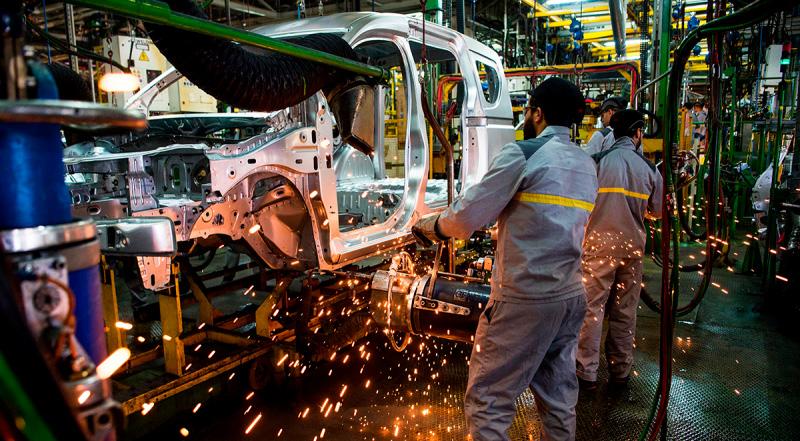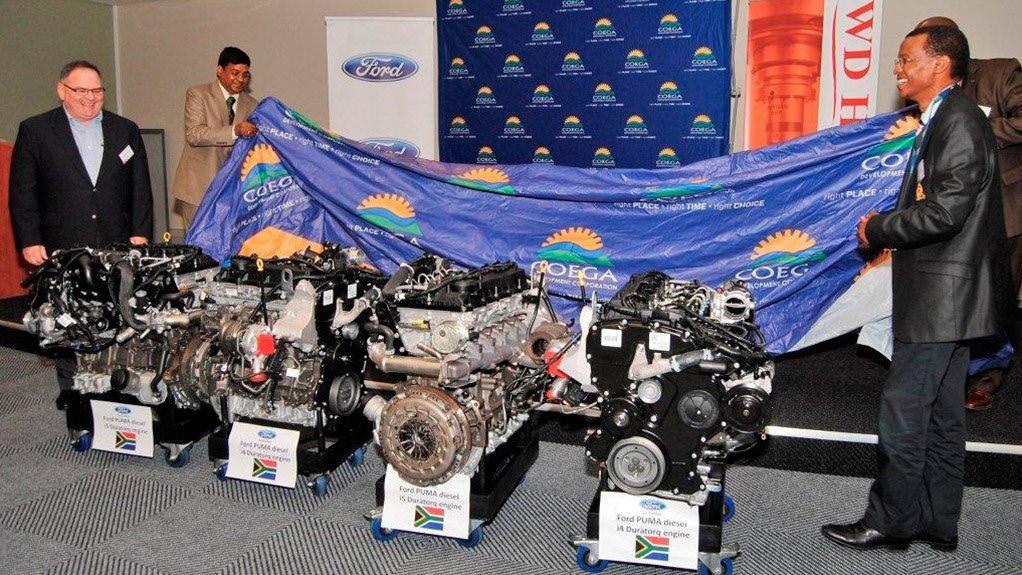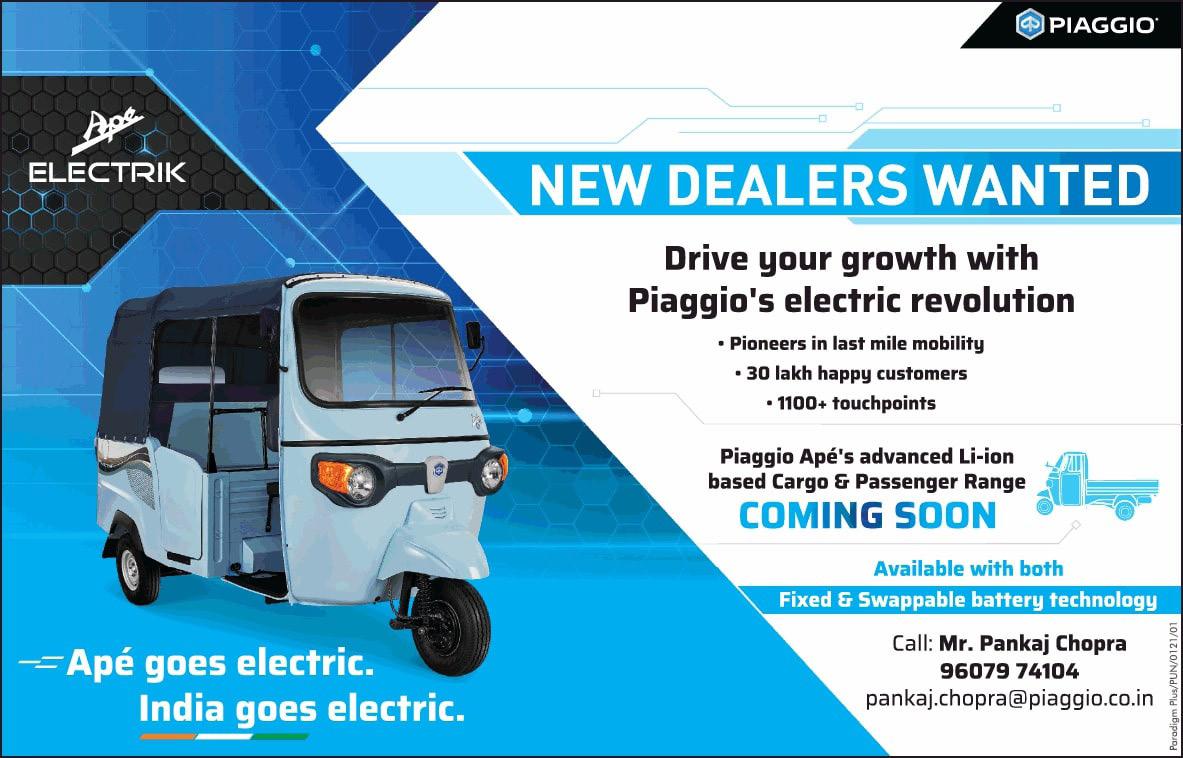
7 minute read
Morocco Becomes Africa’s Auto Manufacturing Hub
Morocco’s Automotive industry is relatively growing each year with car sales exceeding 160,000 units in 2021, and creating over 220,000 direct jobs.
Morocco is Africa’s first passenger car manufacturer. With $7 billion (MAD 65.1 billion) exports made in the car industry at the end of 2018, Morocco has surpassed South Africa as the biggest exporter of passenger cars on the continent.
Advertisement
As of 2021, new passenger vehicles (PCs) recorded an increase of +10.77% with 115,611 units sold, transforming Morocco as a leading automotive manufacturing hub in Africa. billion (MAD 69 billion) in 2015 towards developing infrastructure in Morocco’s southern landscape, including roads, universities, airports, hospitals, and more.
The recent Tangier-Casablanca high speed rail project, a $4 billion (MAD 36 billion) investment that has rendered Morocco’s infrastructure more modern and efficient in recent years, is also a major development for the country’s infrastructure industry.
With the government incentives and foreign investments’ rapid implementation in Morocco, financial experts anticipate the automotive sector to grow by $14 billion (MAD 126 billion) within the next five years.
Despite the consequences of the COVID-19 crisis, the industry has gradually recovered this year, selling around 400,000 cars to Europe, with France, Spain, Germany, and Italy among its top exporters.
The Financial Times reported that Marc Nassif, managing director of Renault in Morocco, the biggest manufacturer in the country, said that local suppliers provide the French auto company with automotive components for its vehicles, such as seats and axles.
He estimated that local components constitute 60% of the final product and predicts the number to rise to 65% in the near future.
As for the country’s infrastructure, the Moroccan government allocated $7.76
Morocco’s automotive sector in Expo 2020 Dubai
The General Confederation of Moroccan Entreprises (CGEM) and the Moroccan Agency for the Development of Investments and Exports (AMDIE) organized “Morocco Week” in Dubai as part of the Expo 2020 Dubai, spanning from October 10 to 16.
There was a large attendance of Moroccan public and private operators aiming to promote Morocco for foreign investors through highlighting the kingdom’s potential as a global investment hub.
CGEM’s President, Chakib Alj, said Morocco’s political stability and geographical location played a key role in attracting foreign investment, making the North African country the second most attractive investment destination, behind Egypt and ahead of South Africa, Kenya, and Rwanda.
With more than 60 free trade agreements signed with Europe, the US, Turkey, the United Arab Emirates and elsewhere, Alj recalled Morocco’s competitiveness and massive efforts in infrastructure and automotive to become an essential gateway to Africa.
“All these achievements have made Morocco a prosperous and safe environment for business,” he said.
During the event, Morocco introduced foreign investors to the main features of the New Development Model (NDM).
The North African country will soon implement the framework of the NDM to expand its economic growth and investment opportunities in various sectors, especially in renewable energies.
“By choosing Morocco, an investor chooses growth, innovation, visibility, stability,” Alj said.
“[The investor] also chooses to access a growing continent with a promising future,” he added.
During “Morocco Week,” organizers held a seminar to highlight Morocco’s industrial sector.
Both Moroccan and foreign participants stated that Morocco’ industrial sector “has achieved a remarkable success that exceeded all expectations,” making Morocco a prominent destination for its national industrial fabric.
The event will also host B2B meetings and conferences centered around industry, logistics, finance, renewable energies, and innovation.
Coega Development Corporation extends automotive expertise to Senegal

The Coega Development Corporation (CDC) announced it is extending its advisory services and expertise in the automotive industry to Senegal.
CDC Head of Marketing, Brand and Communications, Dr Ayanda Vilakazi: “Final negotiations between Senegalese Investment Agency (PAIMRAI) and the CDC have recently concluded with the CDC and Automotive Investment Holdings (AIH) being appointed to elaborate a strategy for the development of the automotive industry in Senegal.”
Vilakazi said the sub-Sahara Africa automotive sector currently accounts for less than 3% of global production, against 30% in China, 22% for Europe and 17% for North America. States, 173 in China and 214 in South Africa, for a world average of 180 cars per 1,000 inhabitants. This rate hardly exceeds 3% in Senegal, which means that only 30 people out of 1,000 own a private vehicle,” Vilakazi said.
Apart from Nigeria and Ghana, the automotive industry remains nascent in the member countries of the Economic Community of West African States, whose process of industrialisation faces the threat of used car imports from Europe, Japan, United States, Canada and other countries.
“The sub-regional and regional integration, through the development of upstream and downstream links in the automotive industry value chain, will stimulate industrialisation and competitiveness throughout Africa,” the CDC said.
“The motorisation rate in this region was very low in 2018, with 42 cars per 1,000 inhabitants, against 837 in the United According to research conducted by Dakar’s Foreign Trade Office, about 100,000 vehicles are imported to the country every year, which require constant replacement of parts due to difficult climate and infrastructural conditions. Senegal imports almost all spare parts. However, a strong focus for the government is to encourage the automotive industry in the country. It is an important driving force for Senegal. Stringent environmental regulations on pollution and carbon emissions are necessitating heavy investments.

“The Senegalese Automotive Industry Strategy developed by the CDC and AIH will provide a comprehensive analysis of the automotive industry in Senegal, its potential and the upstream and downstream linkages that can be developed with countries such as South Africa and Morocco, which are the leading vehicles manufacturers in the continent,” the CDC said.
Collaboration in Africa’s automotive industry is key The appointment of the CDC sees the organisation expanding its project footprint throughout the continent, with projects currently in Zimbabwe, Cameroon for the Central African Republic and now Senegal.
Drawing from 21 years of expertise in project managing mega and complex infrastructure projects in South Africa for the public and private sector, the Coega Special Economic Zone (SEZ) has successfully developed its Automotive Zone and attracted investment exceeding $895 million.
CDC Global Market Manager Nkuli MxengeMayende said he encouraged collaboration with the rest of the continent. He believes collaboration will promote working together, championing and driving forward implementation of free trade across the borders. He also believes that at a time like this we should take advantage of the supply chain networks and technological innovation within the industry.
“We believe that the African Continental Free Trade Area (AfCFTA) will provide investors with easy access to new, rapidly developing markets while it has the potential to lift 30 million people out of extreme poverty but achieving its full potential will depend on significant policy reforms and trade facilitation measures,” said Mxenge-Mayende.
The Smarter Mobility Africa summit held in October championed the idea of collaboration and working together under the principles of Ubuntu – I am because you are. The opening panel discussion looked at how the Africa Free Trade agreement can foster electric vehicle standardisation across the continent.
Nigerian mobility startup Moove expands to Cape Town
Nigerian mobility startup Moove, which provides revenue-based vehicle financing to help individuals across Africa own their own vehicles, has expanded to Cape Town and is gearing up for further panAfrican growth.
Founded by British-born Nigerians Ladi Delano and Jide Odunsi, who have successfully built three other businesses in Africa over the last eight years through venture studio Grace Lake Partners, Moove is democratising vehicle ownership in Africa by providing revenue-based vehicle financing to mobility entrepreneurs.
Moove embeds its alternative creditscoring technology onto ride-hailing and e-logistics platforms, which allows access to proprietary performance and revenue analytics of mobility entrepreneurs to underwrite loans. Its model is to provide loans to its customers by selling them new vehicles and financing up to 95 per cent of the purchase within five days of sign up.
The startup last month raised a US$63.2 million Series A debt and equity funding round to help it expand more quickly, and it has now announced its launch in Cape Town. The expansion marks the fourth city in which Moove has launched within only 15 months of operations, building on existing operations in Johannesburg, Lagos and Accra. The startup plans to establish a presence in more locations over the coming months.

The news also coincides with five new hires for Moove’s global C-suite and the milestone of completing one million Uber trips in Moove-financed cars.
“We’ve only been operating in South Africa for four months, but it’s an excellent market with huge demand for our product,” said Sinako Cetyiwe, South Africa country manager for Moove. “The next phase for Cape Town and the rest of the country is to grow our sign-ups, revenue, and trips so that we can empower more South Africans to become mobility entrepreneurs and earn a living in safe, new vehicles.”










